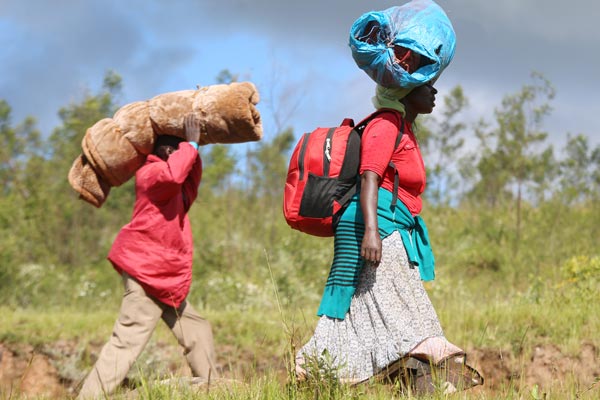
EDITORIAL COMMENT
A year after Cyclone Idai tore through Manicaland and some parts of Masvingo province, thousands of families are still struggling to rebuild their lives after the government left them on their own soon after the hype around the disaster died down.
According to a report carried elsewhere in this publication, hundreds of families in Chimanimani — the area that was worst affected by what has been described as southern Africa’s worst weather-related disaster — remain in make-shift shelters.
Thousands of people had their homes destroyed by the heavy rains.
Most lost all their sources of income and for them to piece their lives together, it will take more than rhetoric and televised visits by the country’s leadership.
The government should have by now come up with a concrete plan, which is backed by a proper budget to aid in the reconstruction of homes and general infrastructure.
Zimbabwe cannot wait for donors to lead in the reconstruction of homes and infrastructure in the area.
Some roads, water supplies and schools need urgent attention, and this can only happen if there is a deliberate programme to assist the affected people to rebuild their lives.
- Chamisa under fire over US$120K donation
- Mavhunga puts DeMbare into Chibuku quarterfinals
- Pension funds bet on Cabora Bassa oilfields
- Councils defy govt fire tender directive
Keep Reading
Indications are that less than half of the US$450 million needed for relief and recovery in areas affected by Cyclone Idai has been raised by donors to benefit both Zimbabwe and Mozambique.
Only US$40 000 had been committed by the first quarter of this year.
Amnesty International said many of the affected people in Zimbabwe were still living in makeshift tents in camps set up by the UN Refugee Agency.
The clear message is that donors alone cannot be expected to contribute to the recovery efforts as there are many other communities around the globe that are affected by disasters and need similar help.
By now Zimbabwe should have structured ways of raising the required finances to promote local solutions to the problem.
There are other communities in Hwange, Tsholotsho and Binga that were recently affected by floods that need similar support to rebuild their lives.
Government’s lethargy in dealing with natural disasters cannot go on unchallenged.
Departments such as the Civil Protection Unit need to justify their existence by leading in the recovery efforts in Chimanimani and the other areas affected by floods in Matabeleland.
Instead of funding programmes that do not add any value such as the Political Actors Dialogue, whose regular meetings in hotels across the country are gobbling millions of dollars, the government must help the victims of Cyclone Idai put the painful history behind them.










